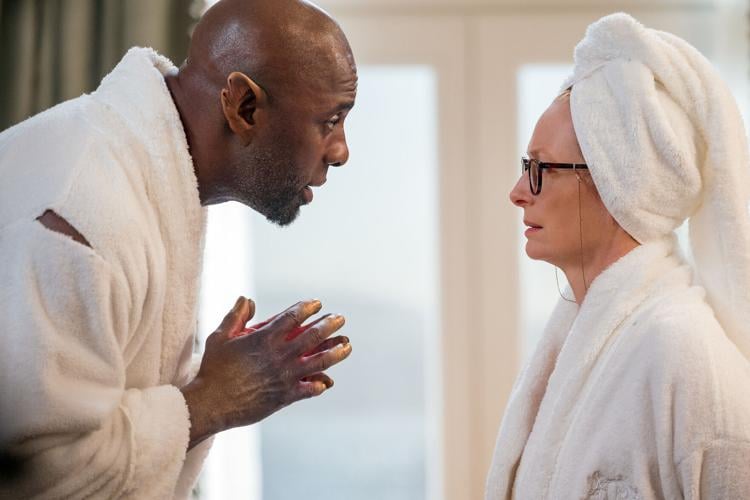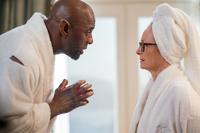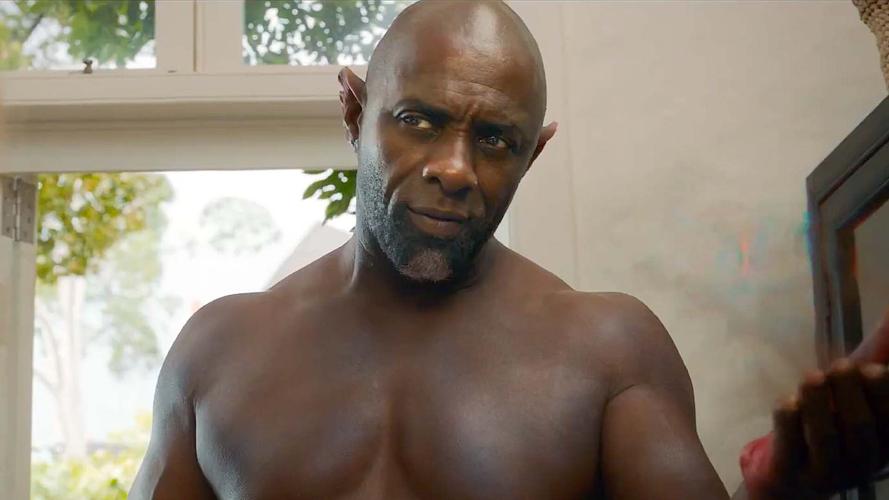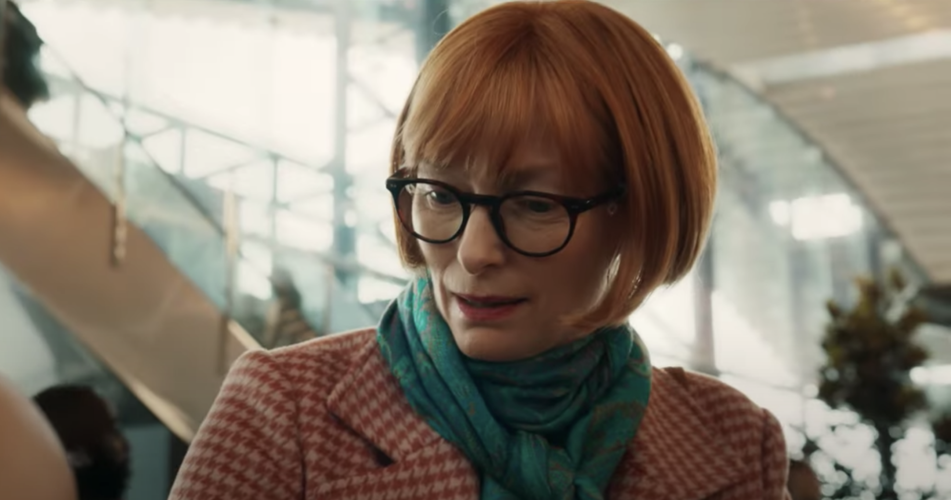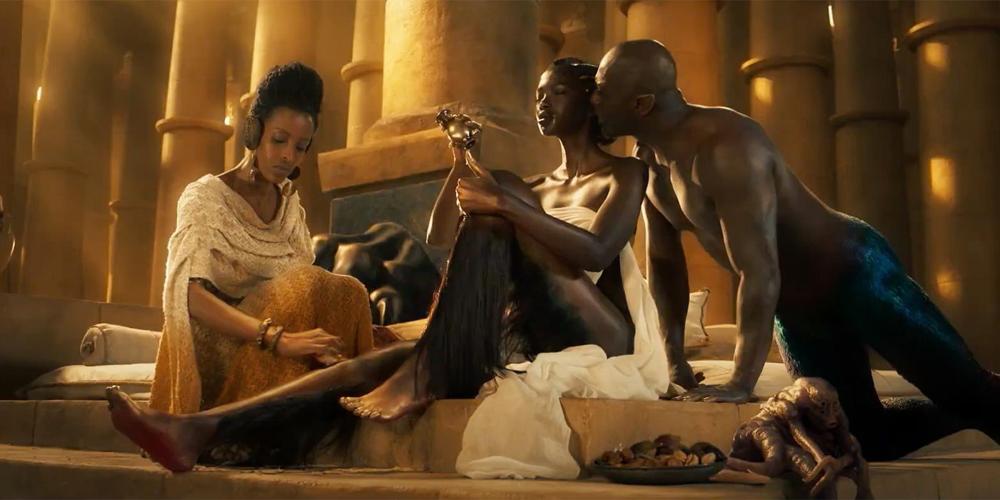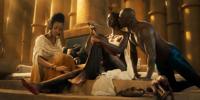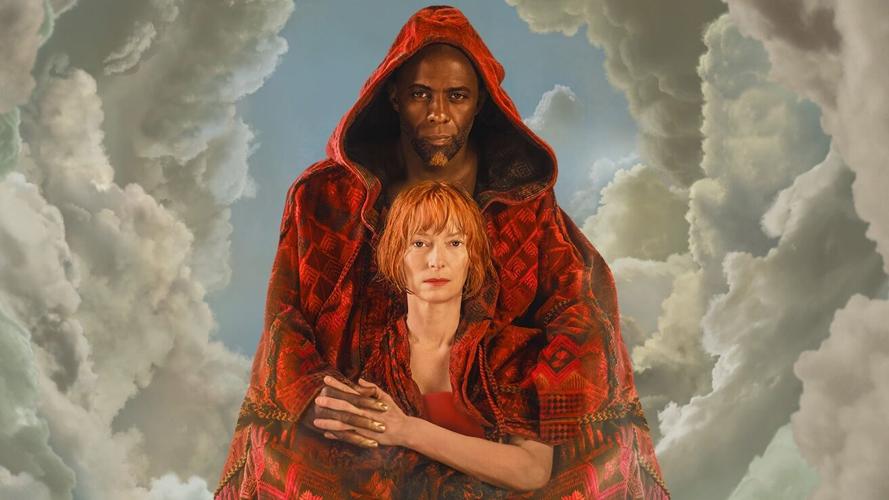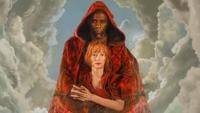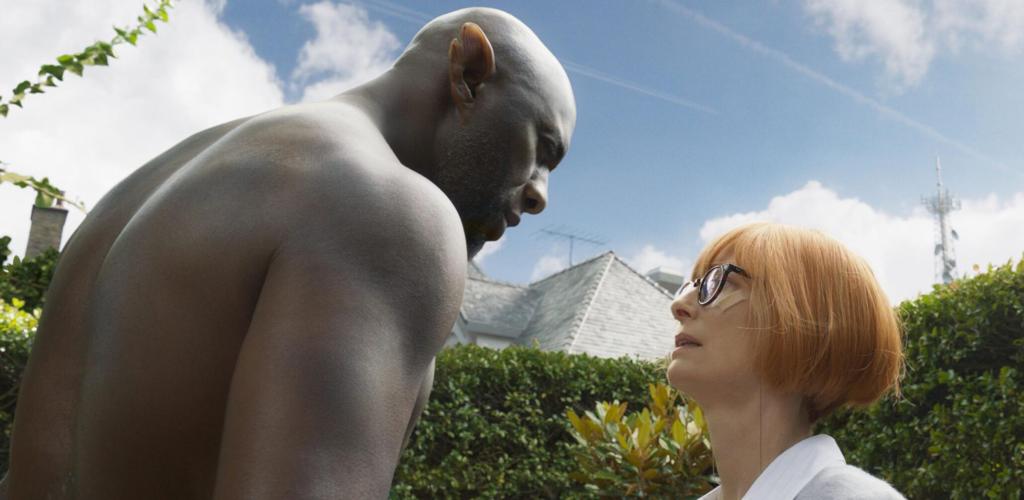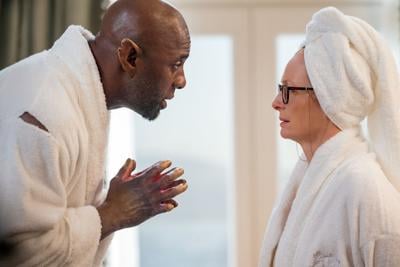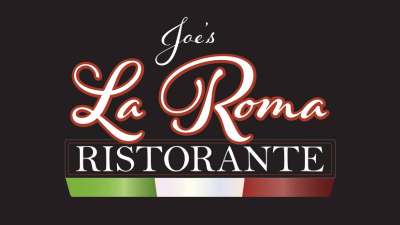Editor’s note: The views and opinions expressed in this review are solely those of Marlon Wallace and do not necessarily reflect the views and opinions of WBOC.
Marketed as Aladdin (1992), but for adults, this film is nowhere near as good as that 1992 animated film from Disney. Disney did a live-action remake, starring Will Smith. That remake also didn’t measure up to the 1992 version. The basic idea is that a powerful, magic being that can grant wishes is trapped inside some object like a lamp with the film following one person opening that object and being given the choice of making three wishes.
The 1992 film suggested that the magical being was a slave, basically being kept in chains. When it comes to slavery, there’s no greater example than the slavery in the United States. Will Smith is African American. He’s a Black person. Given the enslavement of Black people in the USA, one would think that some commentary about it would have been made in Smith’s version of Aladdin (2019). Yet, that wasn’t the case. This film also has a Black person as that magical being who is basically enslaved. The film does have commentary about it, but this film undermines that commentary to certain degrees.

Idris Elba (Fast & Furious Presents: Hobbs & Shaw and The Suicide Squad) stars as the Djinn, a mythical creature in Arabic and Islamic culture. Even though the mythical Djinn has a long historical and even religious context, most people associate the Djinn with what was told in One Thousand and One Nights, which is the Middle Eastern collection of stories where the original story “Aladdin’s Lamp” first appeared. The Djinn was called a “genie” and it granted wishes after being released from a small object. In this film, the Djinn lives inside a tiny glass bottle, which ended up in a Turkish shop.
For people of a certain age in the USA, their reference of djinn might come from the TV series I Dream of Jeannie (1965), which was about a female genie. She’s 2000 years-old and she falls in love with a modern-day man. Director and co-writer George Miller (Mad Max: Fury Road and Babe) is adapting a 1994 short story by A.S. Byatt, but, in a lot of ways, he’s also riffing off that 1965 series by Sidney Sheldon. Yes, Miller’s film starts out as a riff of Aladdin, but, later, his film pivots to become “I Dream of Idris Elba.” It’s this switch-up that doesn’t necessarily work or is what undermines what is the initial set-up.

Tilda Swinton (Doctor Strange and The Chronicles of Narnia: The Lion, the Witch and the Wardrobe) co-stars as Alithea Binnie, a literary scholar who travels from London, England, which is her home, to Istanbul, Turkey. She goes there to give a presentation in front of a large group of people. She’s a very lonely person. She identifies herself as solitary. She has no family. She did have a husband but they split up. She now claims to be content with her solitude, but there’s some suggestion that she might want to have some kind of companionship. However, she’s recently started having hallucinations. When she meets the Djinn, there’s some question if she’s really interacting with him or if it’s all in her head, a kind of madness.
That question isn’t really a large aspect of this film. The majority of the narrative takes place in Alithea’s hotel room with her having a conversation with the Djinn, as if he were absolutely real, as they get to know each other. The structure of this film, which seems to take its queue from Byatt’s novella, is story-within-story. It’s akin to The Canterbury Tales by Geoffrey Chaucer. Mostly, it’s the Djinn recounting experiences from his past, which extends back for about 3,000 years. The Djinn’s first story is about how he was the lover of the Queen of Sheba, depicted here as an African royal. Yet, Sheba fell in love with King Solomon, a Biblical figure that ruled around 900 BCE.

The Djinn proceeds to tell two other stories. Each one on its surface is meant to explain how the Djinn became ultimately trapped inside his tiny, glass bottle. In Aladdin, the genie automatically became trapped inside the lamp after his master made three wishes. That’s supposedly not the case here. With the exception of the first story, which details his unrequited love for the Queen of Sheba, I’m not convinced that we needed to hear the other two stories, let alone have them depicted on screen. If anything, the third story only adds confusion as to what the scope or even limits are to the Djinn’s powers.
Addressing that third story confusion would constitute spoilers, so I will pivot to what I feel is more problematic in this film. When Miller’s work goes from Aladdin to I Dream of Jeannie, that’s when I feel it becomes problematic. First of all, Aladdin had the genie and his master both be men. They were the same gender, so there was no likelihood that there would ever be any romantic entanglements between them. It’s strange that in all of the stories that the Djinn tells here, all his masters are women, including that of Alithea. Obviously, this is so the film can play with the genie and his master having a romantic entanglement. This is what leads to what I feel is very problematic for the film.

In I Dream of Jeannie, that show was all about a romantic entanglement between the genie and her master. However, that show made it clear from the very first episode that Jeannie was not a slave and her love interest did or could not control her. She was free from the very first episode and was not beholden to her so-called “master.” That is not the case here. The Djinn makes it clear that he is beholden to Alithea. He is basically enslaved to her. Because of the confusion of what the scope or even limits are to his powers, one could argue that the Djinn has some level of freedom, but, throughout the film, he is basically begging for that very same freedom. He’s desperate for it. For there to be a romantic relationship between the Djinn and Alithea, the Djinn should have been given his freedom first, but that’s not really what happens. As such, I was very much soured to this whole thing.
Spoiler alert! Spoiler alert! Spoiler alert!
Yes, the Djinn should have been given his freedom first, but that’s not really what happens. What happens is Alithea has three wishes. She doesn’t want to use them because she’s worried that it will be a kind of monkey’s paw. Eventually, she relents and wishes for the Djinn to fall in love with her. This is very problematic because historically White slave-owners or masters who would have sexual relationships with their slaves were technically committing a crime. Masters having intercourse with their slaves is akin to sexual assault or at worse rape. This is because the slaves have no choice. They’re basically being forced into sexual situations with their masters. Here, the Djinn is akin to a slave and Alithea akin to his master. Using her wish to make him fall in love and subsequently have sex with her is tantamount to sexual abuse. If the film had acknowledged this and addressed it, that would be one thing, but we’re meant to be swept up by the romance of her basically raping him. That is what absolutely soured me to it.
As mentioned, the third story told by the Djinn only added confusion as to what the scope or even limits are to his powers. In that third story, the Djinn’s master is a young woman named Zefir. She wishes to forget the Djinn. That wish is immediately granted and it’s granted in a way that feels automatic and without the Djinn having to do anything. However, when Alithea wishes that she never met the Djinn, that wish isn’t granted immediately. In fact, it’s not granted at all, which implies that the Djinn has the ability to deny certain wishes. If we’re meant to think that the Djinn falling in love with Alithea wasn’t the result of her wish and him making that choice himself, that would take away my sourness, but I don’t think that’s necessarily the case.

Rated R for some sexual content, graphic nudity and brief violence.
Running Time: 1 hr. and 48 mins.
In theaters.

